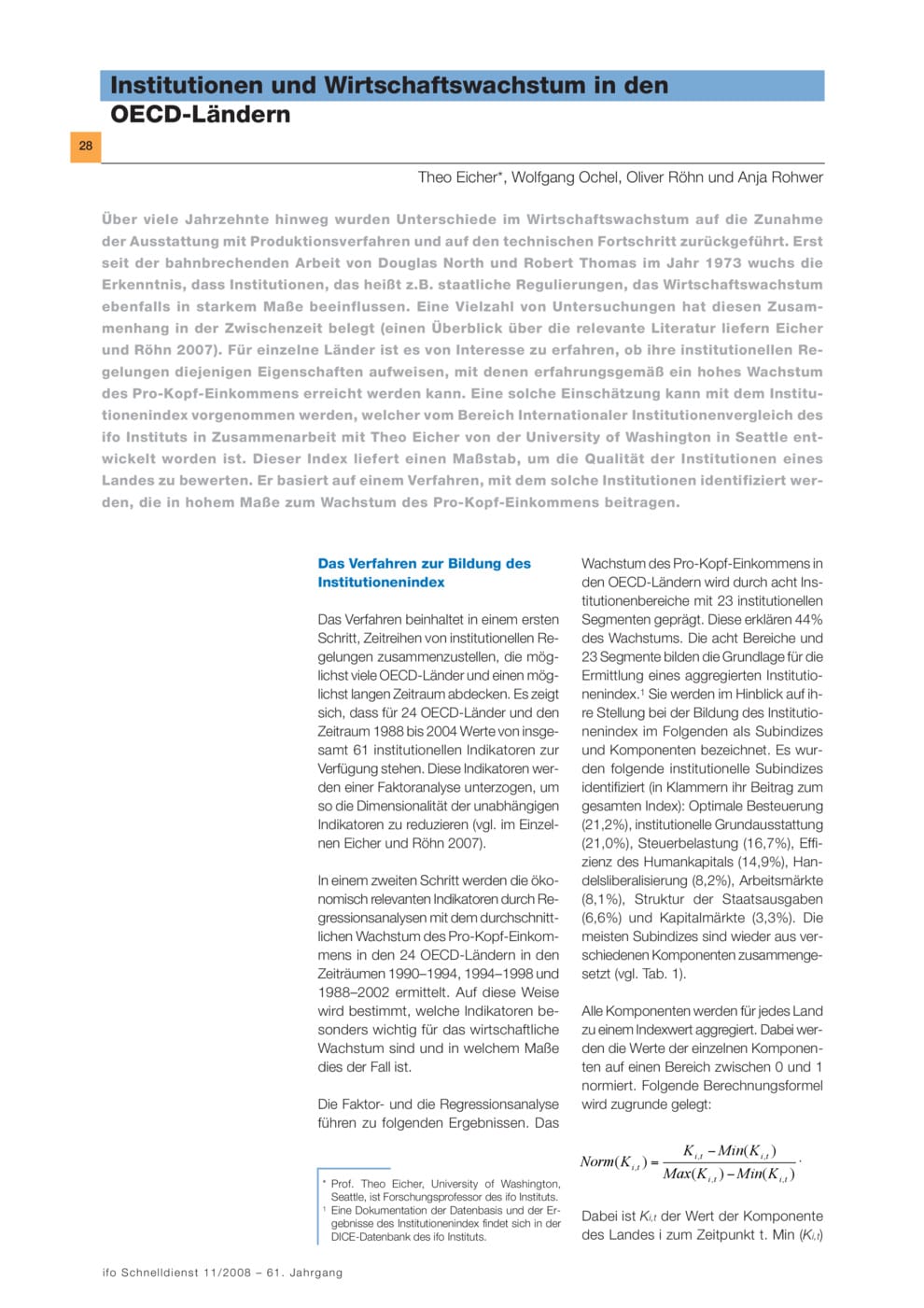Institutions and economic growth in OECD countries
ifo Institut für Wirtschaftsforschung, München, 2008
ifo Schnelldienst, 2008, 61, Nr. 11, 28-36

It is interesting for countries to know whether their institutional regulations display the qualities with which - as experience shows - a high growth of per-capita income can be achieved. This can be determined using the institutional index developed by the Ifo Institute together with Theo Eicher, University of Washington, Seattle. The index is based on a procedure with which institutions can be identified that add substantially to the growth of per-capita income. It also allows comparisons to be made of countries' institutions and their changes over time. The strongest improvement of institutional growth conditions, measured in terms of ranking, was achieved by New Zealand, Australia and Finland. Japan was ranked number two in 1994 but fell to 14th place in the 2007 ranking. A further country that lost position relative to other countries is Norway, which fell from 6th to 13th place. In comparison with other OECD countries the German institutions display a relatively good quality. In 1994 Germany ranked 7th and 11th in 2007. Germany has an excellent administration, property rights are protected, the country is politically stable, and law and order prevails to a large extent. On the other hand, Germany is not free of corruption, and confidence in politicians is comparatively low. A further plus point, in addition to its general institutional conditions, is the openness of the country. The German economy is exposed to international competition and takes advantage of the growth impulses that come from competition.